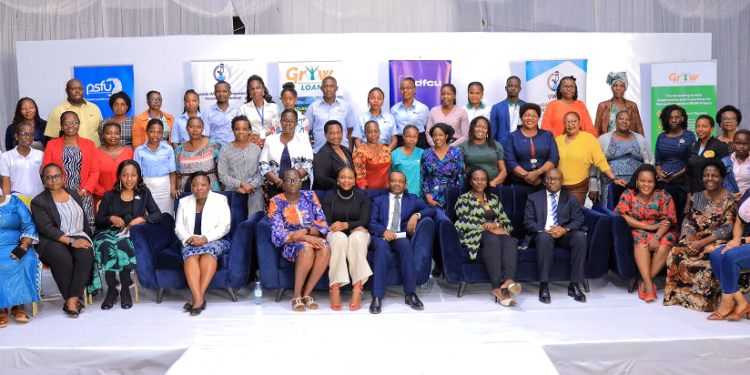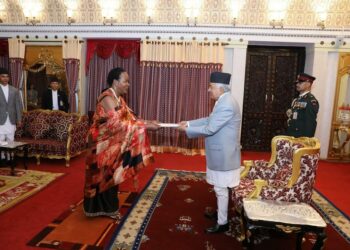There is a ray of hope for sustained access to funding for women enterprises in Africa, a development that is transforming the landscape for female entrepreneurs across the continent. Historically, African women have faced considerable challenges in securing financing for their businesses, often due to cultural and institutional biases, as well as limited access to the collateral typically required by banks. Yet, recent strides by financial institutions and development finance organizations are beginning to break down these barriers, creating new pathways for women-led businesses to thrive.
According to the Global Entrepreneurship Monitor 2016/17 Women’s Report, over a quarter of businesses in Africa are owned or operated by women, positioning the continent as a global leader in female entrepreneurship. Despite this impressive statistic, the financial gap for women entrepreneurs remains significant, with the African Development Bank (AfDB) estimating a $42 billion shortfall in funding for women-led ventures across various sectors, including a $15.6 billion gap in agriculture alone.
The lack of collateral—such as land and property—has long been one of the main obstacles women face in accessing loans, says Conrad Onyango, a business specialist at Bird Story Agency. Historically, women have been seen as higher-risk borrowers by banks, partly due to these asset limitations and societal perceptions of women as less capable business owners. However, this narrative is starting to shift as financial institutions increasingly recognize the immense potential of women entrepreneurs, not just in terms of social impact but also in boosting economic growth across the continent.
Banks Embrace Gender-Sensitive Strategies
In a significant departure from past practices, many banks across Africa are now embracing gender-sensitive strategies, acknowledging the substantial role women play in the continent’s entrepreneurial ecosystem. A 2024 Banking in Africa Survey by the European Investment Bank (EIB) reveals that 72% of commercial lenders have already implemented a gender strategy, with an additional 17% planning to do so in the near future. This shift demonstrates a growing awareness that supporting women entrepreneurs is not just a matter of equality, but also a sound financial decision.
In line with this change, financial products tailored to women entrepreneurs have begun to flourish. Across Uganda, there are many initiatives by banks tailored to benefiting women entrepreneurs. These include; GROW (Generating Growth Opportunities and Productivity for Women Enterprises), a collaborative project between the World Bank, the Government of Uganda, and the Private Sector Foundation Uganda (PSFU).
The project offers loans and grants, business development services, and productive infrastructure to support women entrepreneurs. DFCU Bank is also one of the financial institutions that implements the GROW project. DFCU Bank’s GROW Loan offers loans ranging from 4–200 million Ugandan Shillings at a 10% interest rate with a repayment period of up to two years. DFCU Bank also offers pre and post-training through its Women in Business (WiB) program. Other banks like Centenary, Stanbic, Absa, Post Bank etc have crafted impressive financial initiatives to benefit women in business.
Across Kenya, Gulf African Bank offers ‘Annisaa,’ Credit Bank provides ‘ElevateHer,’ and Family Bank runs ‘Queen Banking,’ all aimed at helping women secure financial resources. In Nigeria, Zenith Bank has introduced the “Z Woman” loan, while Access Bank’s “W” initiative is a comprehensive service for women-led businesses. Pan-African institutions like Ecobank and Absa have also launched women-focused programs, including ‘Ellevate’ and the ‘She Business Account,’ respectively, to cater to the unique needs of female entrepreneurs.
These gender-targeted financial products are not only empowering women but are also proving beneficial for the banks involved.
According to the EIB survey, nearly 70% of banks report lower non-performing loan rates among female-led businesses compared to male-led ones, a sharp improvement from previous years. This shift highlights the growing recognition that women-owned businesses are often more creditworthy than traditionally assumed, and that supporting them yields strong financial returns.
Development Finance Organizations Play a Pivotal Role:
In addition to commercial banks, development finance organizations are also playing a crucial role in improving access to capital for women entrepreneurs. The African Development Bank’s Affirmative Finance Action for Women in Africa (AFAWA) initiative, for example, has already secured over $1.5 billion in investments for women-led small and medium-sized enterprises (SMEs). Similarly, the World Bank Group’s new Gender Strategy 2030 aims to provide capital to 80 million women and women-led businesses, addressing the barriers that have traditionally prevented them from accessing financing.
These efforts are not only helping women entrepreneurs gain access to essential capital, but they are also working to eliminate the gender biases that have long been prevalent in lending practices. By partnering with regulators, fintech companies, and incubators, development finance institutions are striving to create a more inclusive financial ecosystem where women are no longer at a disadvantage.
Looking Ahead: A More Inclusive Financial Future:
The growing trend of financial inclusion for women entrepreneurs signals a brighter future for female-led businesses in Africa. With financial products specifically designed for women, a decline in gender biases, and a surge in support from both commercial and development financiers, women entrepreneurs are now positioned to make an even greater contribution to Africa’s economic development.
As this financial empowerment continues to gain momentum, the hope is that more women will be able to access the resources they need to expand their businesses, create jobs, and drive economic growth across the continent.
Do you have a story in your community or an opinion to share with us: Email us at editorial@watchdoguganda.com













